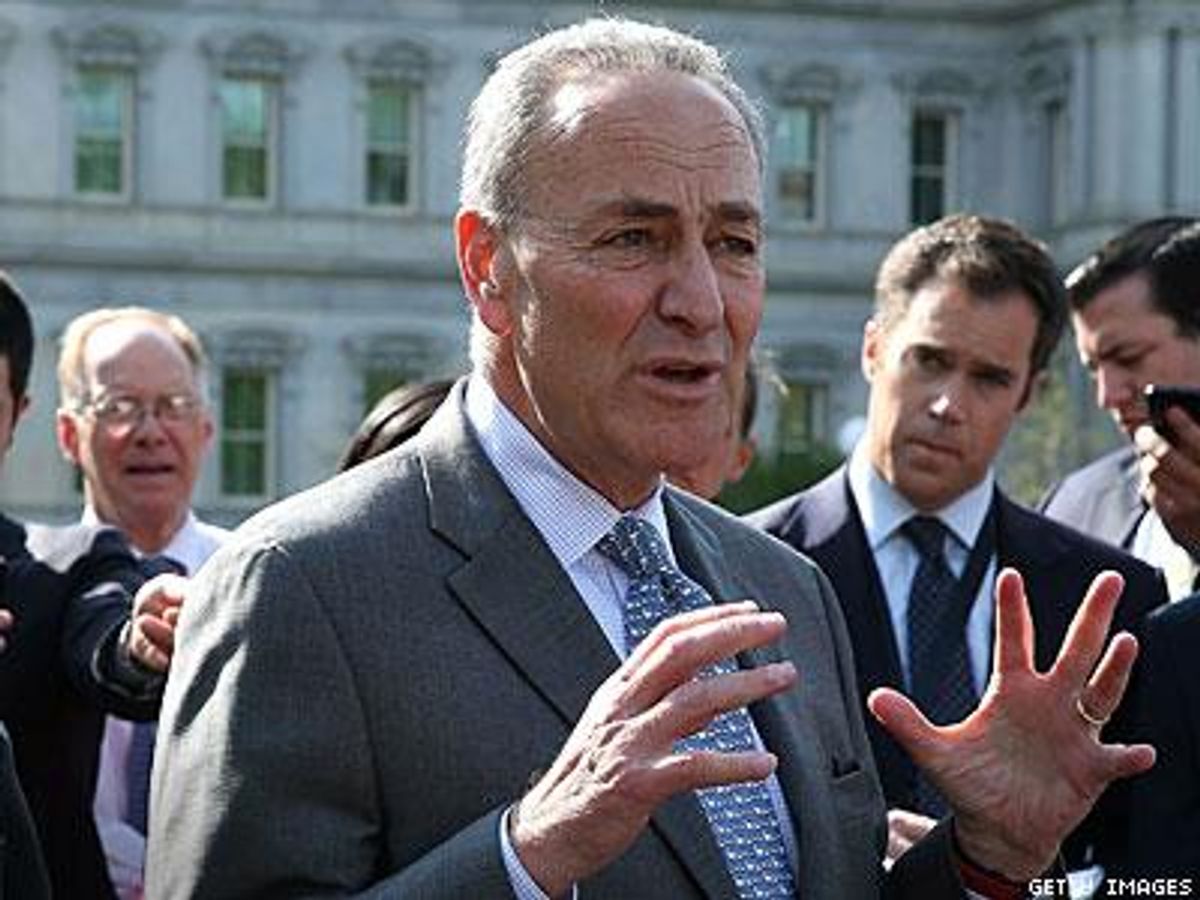When immigration reform passed through the Senate Judiciary Committee on Tuesday, LGBT activists were left feeling betrayed that none of the Democrats offered an amendment to include them. Sen. Patrick Leahy of Vermont was expected to offer a fix for a longtime problem that often ends with binational same-sex couples split up by the government or with Americans in exile in countries that recognize gay relationships. But that solution never came.
Now one of the senators who played a key role in drafting immigration reform as part of the Gang of Eight is explaining why LGBT Americans were once again left out -- though New York senator Chuck Schumer readily admits, "I know that this provides little comfort."
Schumer and Illinois senator Dick Durbin were both part of the gang and both are members of the Judiciary Committee. Activists criticized them when LGBT couples were left out of the gang's draft legislation, and both were relatively quiet on whether that would be fixed in committee -- its best and perhaps only chance.
Republicans in the gang were very public with threats to scuttle the entire reform bill if it had included same-sex couples. Then reports said the White House had urged Leahy to drop his plans for a vote in committee on two amendments that would have included LGBT couples. The amendments essentially would have added the Uniting American Families Act to the legislation. Here's how Schumer explained the exclusion on his Facebook page today:
Many of you are asking about UAFA and I would like to say yesterday was one of the most trying days in my 30-plus years in public office. I've been a lead sponsor of the Uniting American Families Act for a number of years and I believe and desire that its principles should be included in the immigration bill. There will be an opportunity to add it to the bill on the Senate floor.
I believe opposing its inclusion is rank discrimination. I also believe the American people support this because they support equal treatment under the law for all people. I have urged inclusion of its principles in this immigration bill publicly, privately, individually, with my colleagues, both Democrat and Republican. But there are many in Congress who take a very different view than me on this issue.
The bottom line is that in the political reality in which we operate, the Senate and more broadly, the U.S. Congress, those who disagree with me have more than enough power to prevent passage, either as a stand-alone bill or as part of the immigration bill. And if we added it to S.744 in committee, they would have walked away and the bill would have failed.
They have said it publicly, they have told me privately, and I believe them. The result: no equality, no immigration bill. Everyone loses. What can be accomplished via this comprehensive bill for 11 million people in the shadows, for the security and prosperity of our nation is too vital, too rare to let fail. I know that this provides little comfort. But I want you supporters of this amendment to know, I will be here and ready to work with you to advance the cause of legal equality. This is far from the last battle.
The bill now moves to the floor where we again will have opportunities to improve the bill, and I stand ready to work with all to make accomplish this task.


















































































